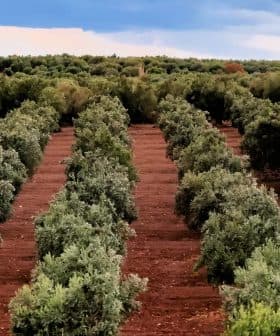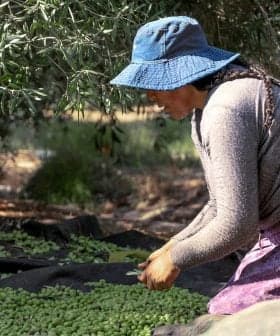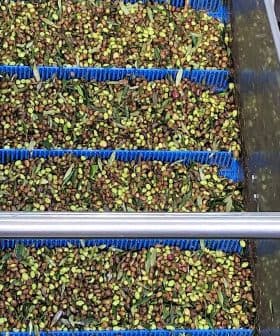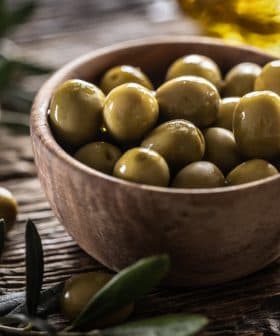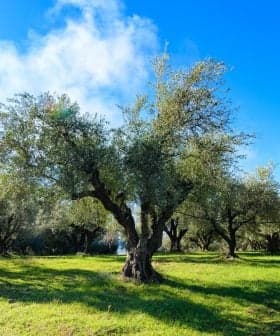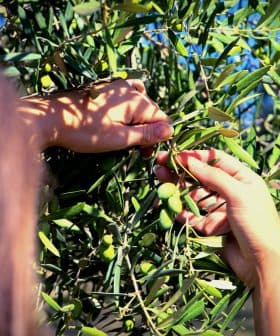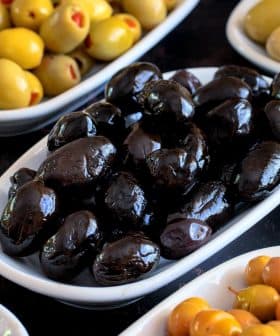Greece Again Adds Kalamata Olives to National List of Plant Varieties
The term ‘Kalamata olives’ has been re-registered in Greece as synonymous with the Kalamon cultivar, allowing producers throughout the country to use the name. The decision aims to normalize the domestic market for olives in a season where record production is expected, with Greek olive producers heavily investing in quality products for export.
In Greece, the term Kalamata olives has been re-registered on the national list of plant varieties as synonymous with the Kalamon cultivar.
Once again, producers throughout the country can use the name Kalamata for their Kalamon table olives. Historically, the term Kalamata has been reserved for the use of Kalamon olives produced in Messenia and Laconia on the southern Peloponnese peninsula.
A 2018 ministerial decree originally allowed the term to be used more broadly for Kalamon olives across the country. However, the decree was reversed by the country’s supreme court last June after an appeal from Messenian producers alleging misuse of the legally protected term ‘Kalamata.’
See Also:Drought, Heat Hit the Table Olive Harvest in Spain“[The supreme court repealed the 2018 decision] as not legally justified due to lack of essential technical judgment of the competent bodies,” the ministry said in a press release. “Minister Georgios Georgantas moved to reissue the decision after the positive recommendation of the competent Technical Committee for Propagation Material.”
“The ministry supports the PDO/PGI [Protected Designation of Origin and Protected Geographical Indication] products and all other iconic products of our country,” the release added. “They promote Greece in international markets and contribute decisively to our goal of identifying Greek products with quality, high nutritional value and our cultural heritage.”
Producers of Kalamon olives in the country can now market their olives as ‘Kalamata olives,’ similarly to their counterparts in the Messenia region.
On the other hand, Messenian producers can use the Protected Designation of Origin label, which the European Union attributed to Kalamon olives of Messenian origin in 1996.
However, the chasm between Kalamon producers based in Messenia and their counterparts in the rest of the country remains.
“The ministerial decree normalizes the domestic market for olives in a season when a record production is expected in the country,” five table olive associations from around the country said in a joint statement.
“Greek olive producers have heavily invested in plant capital, equipment and facilities over the last decades to produce a quality product of which more than 80 percent is exported under the name ‘Kalamata Olives,’ ” they added.
However, producers and local authorities in Messenia have protested the liberalization of the term ‘Kalamata,’ claiming olive growers from abroad could usurp it.
“The ministerial decree enables growers of Kalamon olives anywhere on the planet to market their olives in the European Union and where the Union has relevant [trade] agreements under the name Kalamata,” they said in an announcement after meeting to discuss the situation.
“The ‘Kalamata’ Designation of Origin is protected by Greek and European legislation,” they added. “It is an intangible asset of the producers and is linked to two other products that carry the name of the city of origin, the Kalamata PDO extra virgin olive oil and the Kalamata PGI ouzo.”
According to some estimates, the production of table olives in Greece this year, including the Kalamon/Kalamata and other table olive varieties such as the Chalkidiki and Amfissas, is expected to amount to around 223,000 tons, an increase of 35 percent compared to the previous crop year.


